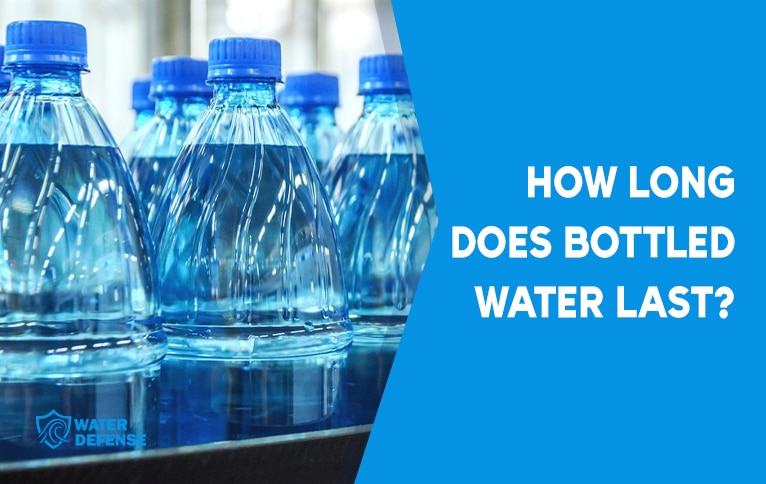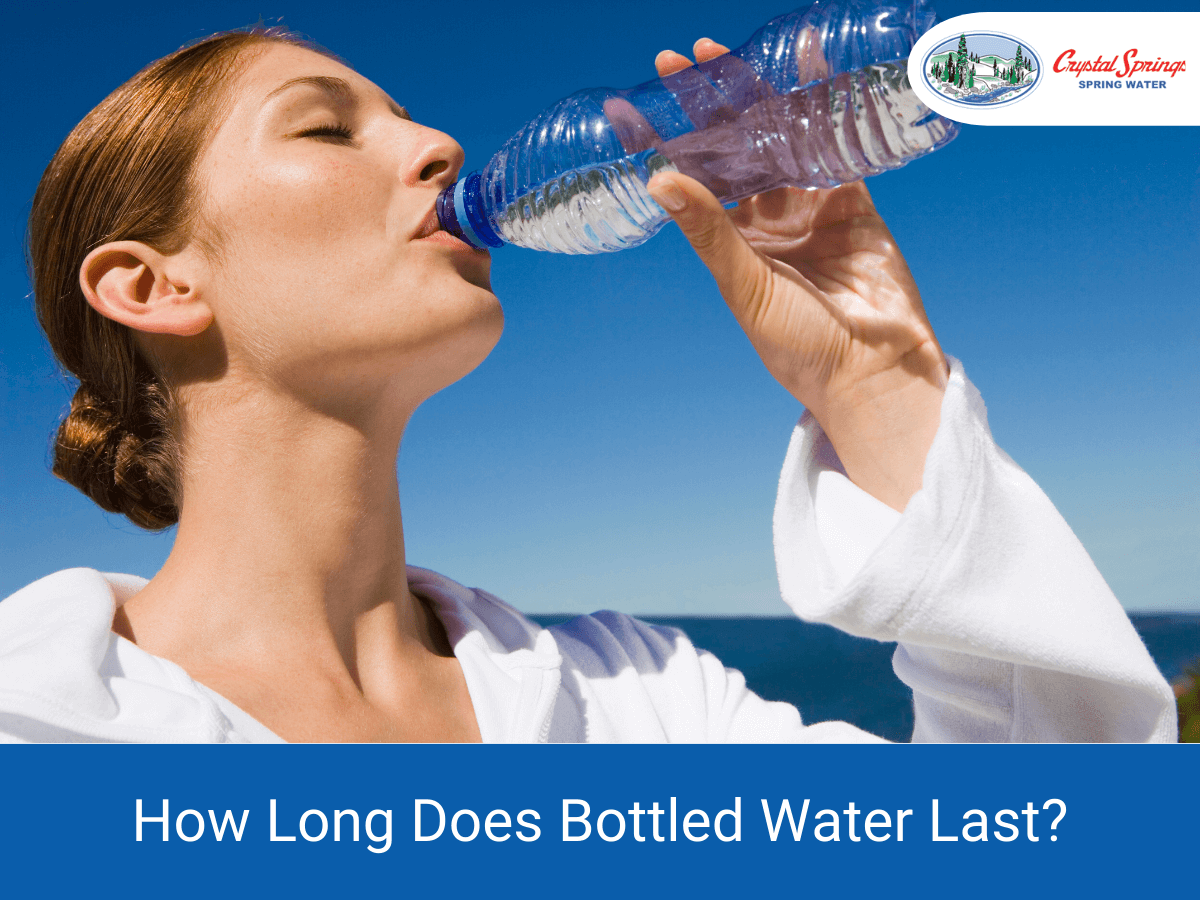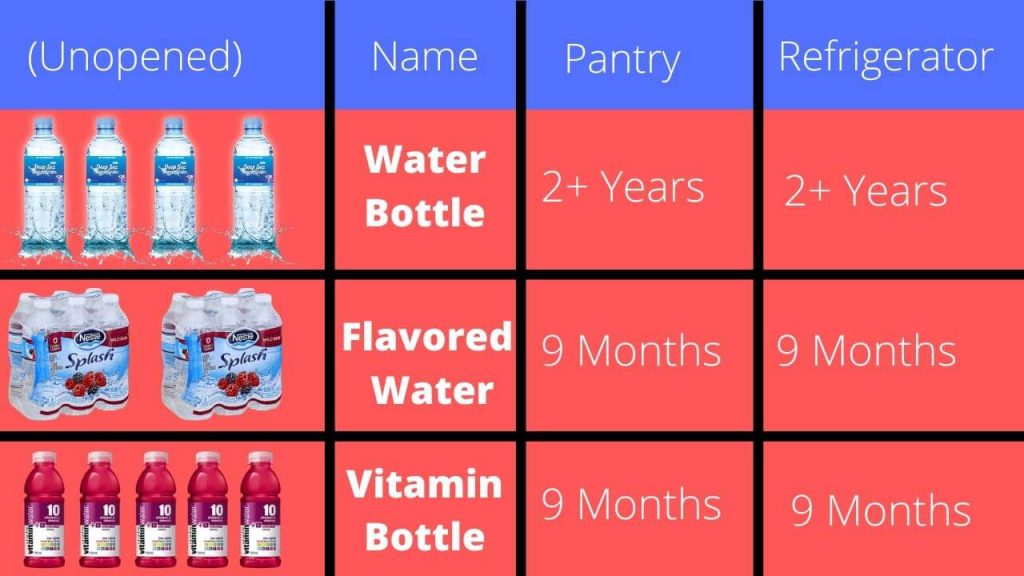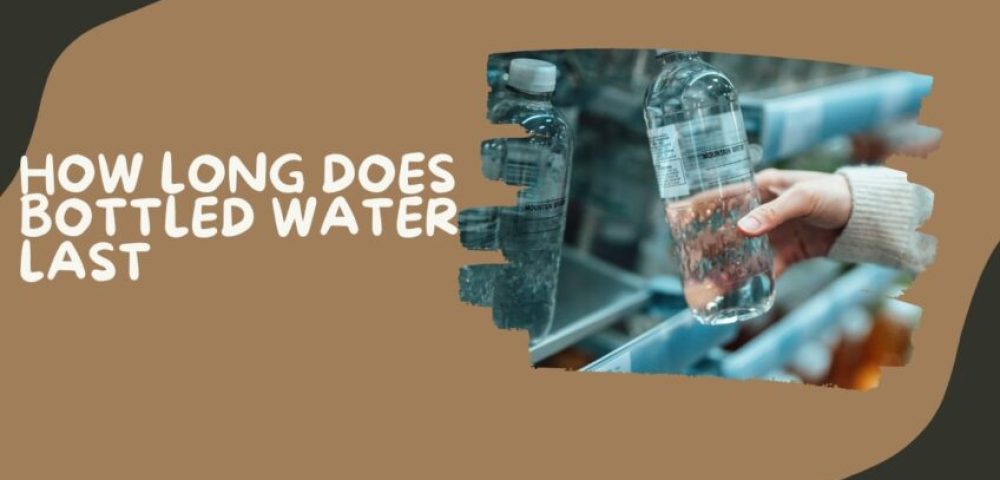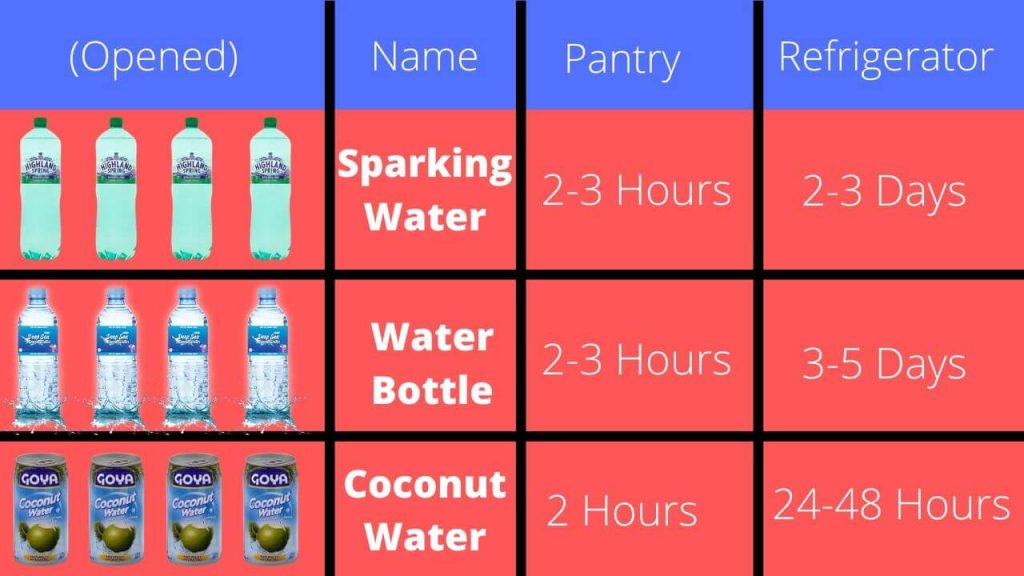How Long Does Bottle Water Last
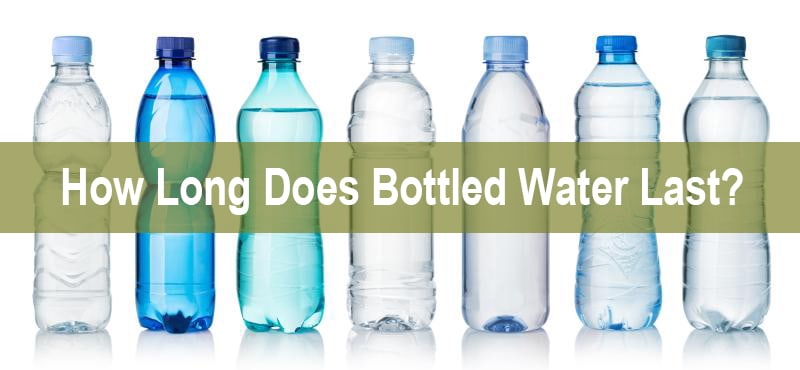
In a world increasingly concerned about sustainability and emergency preparedness, the question of how long bottled water remains safe to drink is more relevant than ever. While often perceived as a practically indefinite resource, bottled water, like any packaged good, is subject to degradation and contamination over time. Understanding the factors influencing its shelf life is crucial for both consumers and businesses alike.
This article delves into the complexities surrounding the shelf life of bottled water. We'll examine the science behind plastic degradation, the role of storage conditions, and the potential health risks associated with consuming water from bottles that have exceeded their recommended lifespan. Furthermore, we will address the environmental implications of bottled water consumption and explore sustainable alternatives.
The Plastic Problem: Understanding Degradation
The primary factor limiting the shelf life of bottled water is the plastic bottle itself. Most water bottles are made from polyethylene terephthalate (PET), a type of plastic prone to leaching chemicals into the water over time.
This leaching process is accelerated by exposure to heat, sunlight, and prolonged storage. While the amounts of chemicals leached are generally considered low and within safe limits by regulatory bodies like the FDA (Food and Drug Administration), their concentration increases with time, potentially affecting taste and raising concerns about long-term health effects.
Studies have shown that chemicals such as antimony and bisphenol A (BPA), though less common in modern PET bottles, can migrate into the water. The extent of this migration depends on the bottle's composition, storage conditions, and the water's pH level.
Official Recommendations and Expiration Dates
Interestingly, the FDA does not require bottled water to have an expiration date. However, many manufacturers voluntarily include them, typically around two years from the date of manufacture.
This date is less about the water itself "going bad" and more about the potential for plastic degradation to affect water quality. Bottled water associations, like the IBWA (International Bottled Water Association), advise consumers to adhere to these dates to ensure optimal taste and quality.
It’s important to note that these dates are conservative estimates, assuming average storage conditions. Extreme temperatures or prolonged exposure to sunlight can significantly shorten the usable lifespan of bottled water.
Storage Matters: Optimizing Shelf Life
Proper storage is paramount in preserving the quality of bottled water. Keeping bottles in a cool, dark place away from direct sunlight is crucial in slowing down plastic degradation.
Avoid storing water bottles near chemicals or strong odors, as PET is permeable and can absorb these substances, affecting the water's taste and safety. It's also advisable to store bottles horizontally to minimize the surface area in contact with the plastic cap.
Experts recommend maintaining a storage temperature between 50°F (10°C) and 70°F (21°C) for optimal preservation. Fluctuations in temperature can also accelerate the leaching process.
Health Risks and Potential Contaminants
While the risks are generally low, consuming water from bottles that have been stored for extended periods or under unfavorable conditions can pose potential health risks. The primary concern is the leaching of chemicals from the plastic, as mentioned earlier.
Another concern is the potential for microbial contamination, especially if the bottle has been opened and resealed. Bacteria can thrive in water, particularly if it contains even trace amounts of organic matter.
Signs of contamination may include a change in taste, odor, or appearance of the water. If any of these signs are present, the water should not be consumed.
Beyond Bottled Water: Sustainable Alternatives
Given the environmental impact of plastic waste, exploring sustainable alternatives to bottled water is crucial. Reusable water bottles made from stainless steel or glass are excellent choices.
Investing in a high-quality water filter for your home can provide a convenient and cost-effective source of clean drinking water. Many filtration systems are available, ranging from countertop pitchers to whole-house filtration units.
Supporting initiatives that promote access to clean and safe tap water is also vital. Encouraging public water fountains and refilling stations can reduce reliance on bottled water and minimize plastic waste.
The Future of Bottled Water
The bottled water industry is evolving, with increasing emphasis on sustainable packaging and reduced environmental impact. Manufacturers are exploring alternatives to PET, such as plant-based plastics and recycled materials.
Advancements in bottle design and manufacturing processes are also aimed at reducing the leaching of chemicals and improving the shelf life of bottled water. Some companies are even incorporating additives to inhibit microbial growth.
Consumer awareness and demand for sustainable options are driving these changes. As consumers become more informed about the environmental and health implications of bottled water, they are increasingly seeking out eco-friendly alternatives.
Conclusion: A Balanced Approach
While bottled water can be a convenient and readily available source of hydration, understanding its limitations and potential risks is essential. Adhering to manufacturer's recommendations, storing bottles properly, and considering sustainable alternatives can help minimize these risks.
The perceived expiration date serves as a guideline for optimal taste and quality, not necessarily a strict indicator of safety. However, when in doubt, it's always best to err on the side of caution and discard water that has been stored for an extended period or under unfavorable conditions.
Ultimately, a balanced approach that combines responsible consumption, sustainable alternatives, and ongoing research into safer packaging materials is crucial for ensuring access to clean and safe drinking water while minimizing environmental impact.
